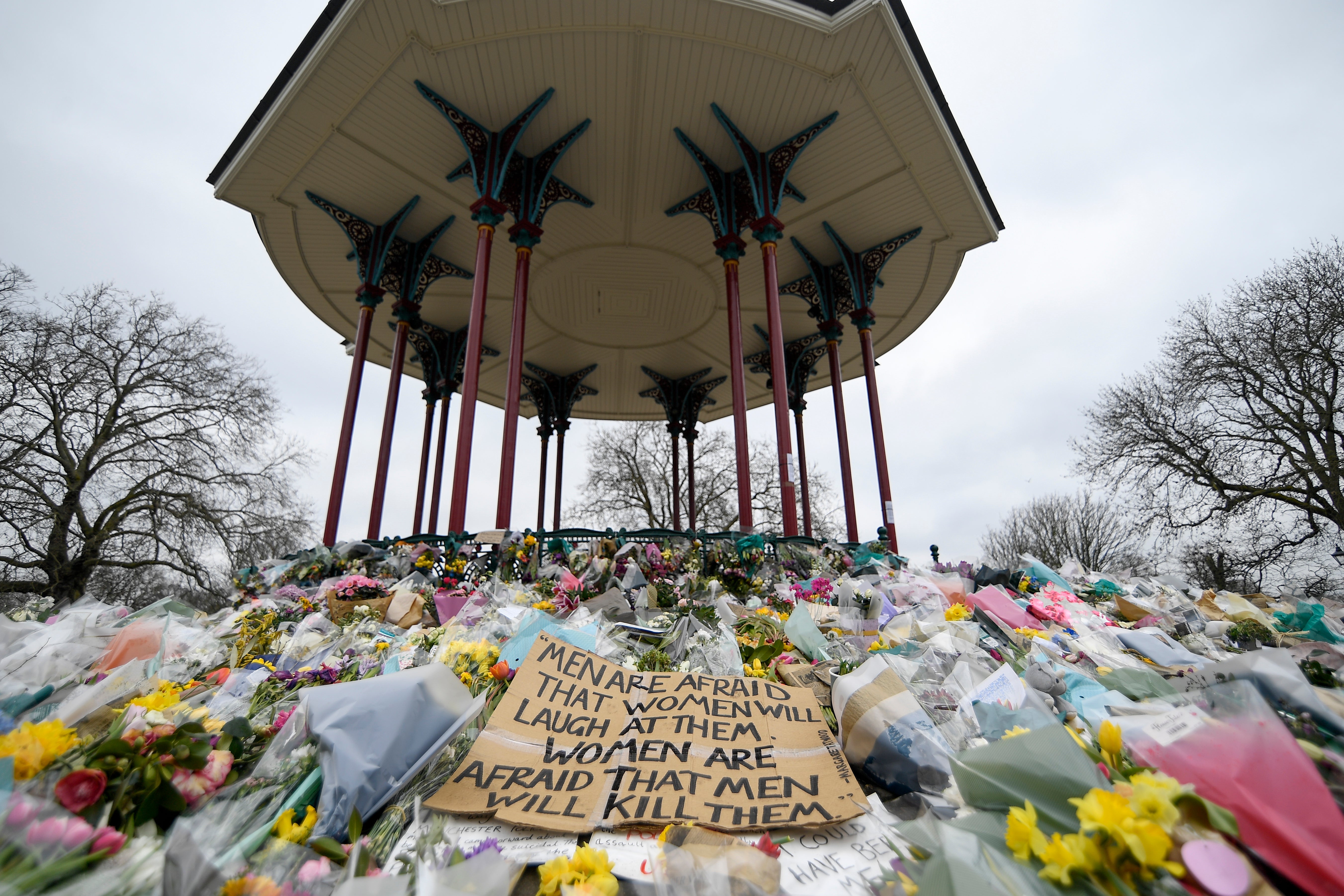Violence against women and girls is a national crisis – we need to act like it
From the prime minister down, we need to make sure a lasting change is made. This is a job we all share


There were so many bouquets, candles, hand-written cards and placards at the bandstand on Clapham Common back in March that all the trees surrounding it had become little satellite shrines, tributes tenderly arranged where there was still space. As night fell, the tea-lights glinted off the floral wrappings and ribbons. No one spoke. And all evening, a steady stream of pilgrims – women but also men – gathered to pay their respects.
I’ll never forget the sadness, anger and emotion I witnessed that night, less than a fortnight after Sarah Everard went missing as she walked home in South London.
I returned last night. In the blazing mid-summer heat, the bandstand – stripped of flowers now – was a rendezvous for runners, evangelical singers and primary school leavers.
The fervour of those nights in March, when protesters clashed with police, feels almost like a distant memory. It shouldn’t be.
Since the vigil, a man has been found guilty of the murder of sisters Bibaa Henry and Nicole Smallman. Every three days, a woman is killed by a man in this country. This is a national crisis, demanding urgent attention.
The government had promised to respond to the clamour for change which erupted after Everard’s death. Yesterday, it did, publishing its strategy on tackling violence against women and girls in England and Wales.
Priti Patel, the home secretary, promised a “national communications campaign” to raise “awareness” and create “behaviour change”. There were a few million pounds offered here and there to research “what works to prevent violence against women and girls” and to “help ensure women feel safe in public places”; there was a pledge to “pilot a tool, StreetSafe” to enable people to report anonymously “where they feel unsafe”.
However, there wasn’t a cast iron commitment to legislate to create a specific offence of street harassment. A new offence of cyberflashing was likewise simply being “considered”, not enacted.
And while there was a new national policing lead to put the same kind of focus on violence against women as on counter-terrorism, campaigners were left wondering how police officers and prosecutors could fulfil the home secretary’s promise to bring more perpetrators to justice against a backdrop of budget cuts. Lest anyone’s forgotten, police officer numbers have fallen by more than 20,000 since 2010 (though the government is now promising to recruit an extra 20,000), specialist rape units have been disbanded and the Crown Prosecution Service has seen a 30 per cent cut in staff since the Conservatives first returned to power.
The founding leader of the Women’s Equality Party, Sophie Walker – herself a victim of stalking – had a pithy response: “An app and an appointment won’t do it.”
Even the government’s own independent adviser on violence against women and girls, Nimco Ali, had hoped for something rather more solid than a commitment from the government to “look carefully” at a street harassment offence.
Perhaps ministers were worried about placing too heavy a burden on already overstretched police forces. Or maybe they were mindful of the anti-woke brigade on their right flank, who would howl if wolf-whistling was criminalised.
Still, Ali and her fellow campaigners will continue to press determinedly for change. They have senior supporters in government. The home secretary recounted her own experience of harassment in the strategy itself. And Victoria Atkins, the minister for safeguarding, told me on last night’s Channel 4 News about the terror of being followed off the night bus.
Even the government’s detractors hope that these women will use the memory of their own personal ordeals to drive change.
To be fair to the government, though, it’s not just about changing laws, but changing culture. This is a job we all share. Parents, teachers, ministers, boys and men. We know the strength of feeling: witness the crowds who paid homage at the bandstand four months ago. Now we all, from the prime minister down, need to translate that fury and upset into lasting change.
Cathy Newman presents Channel 4 News, weekdays, at 7pm

Join our commenting forum
Join thought-provoking conversations, follow other Independent readers and see their replies